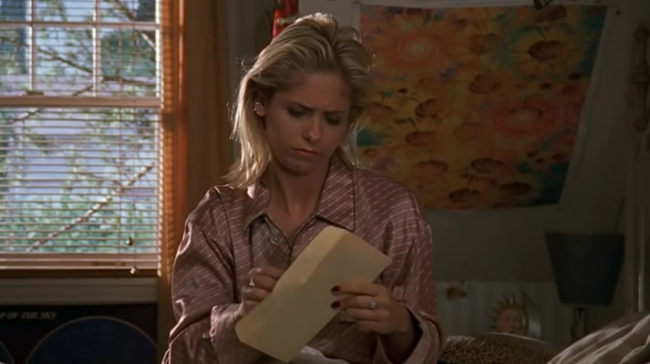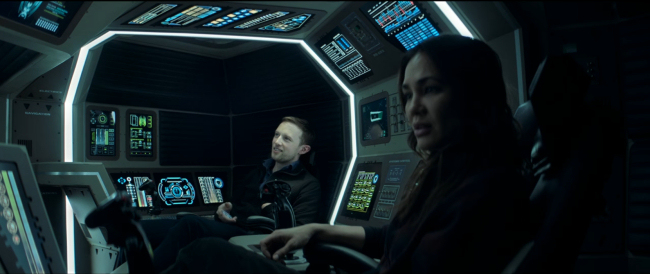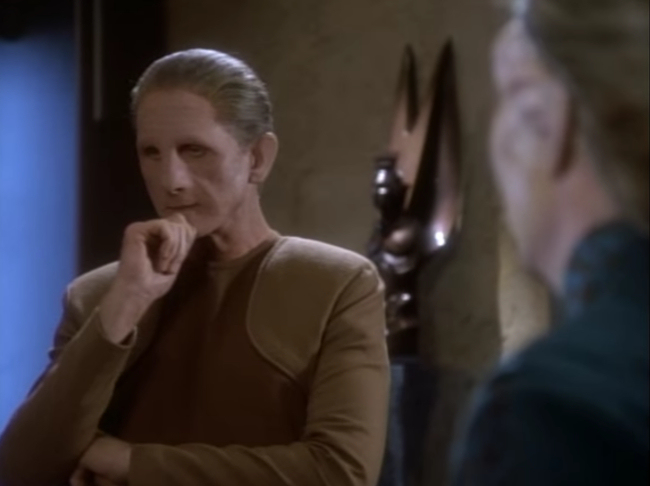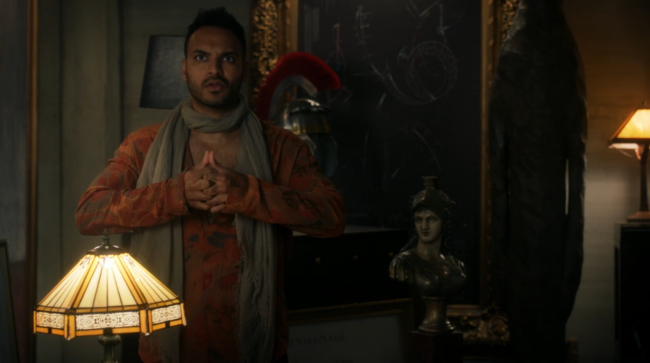
Why on earth did I watch Paradise Towers again? I suppose I am scraping the bottom of the barrel on Doctor Who rewatches. If anyone wants to request a serial for me to review, please do so.
Actually, Paradise Towers isn't all bad. It's kind of adorable, really, especially the Kangs and Pex (Howard Cooke). I also really like the villain, the Chief Caretaker, played by Richard Briers.

I was surprised to read that most people hate his performance, considering it over the top. According to the TARDIS wiki and Wikipedia, both John Nathan-Turner and Andrew Cartmel thought he was playing it too broad. As far as I can tell, he and Sylvester McCoy were the only ones who matched the tone of their performances to the material. Seriously, over the top? When Briers runs a crew of SS dressed as bellhops, Briers himself has a Hitler moustache, and their enemies are groups of pacifist girl gangs with names like Fire Escape (Julie Brennon) and Drinking Fountain (Catherine Cusack)? Is this really the time for sober dramatic subtlety?

The resort tower the Doctor brings Mel (Bonnie Langford) to turns out to be populated by gangs and nice little old lady cannibals who enjoy devouring tea, crumpets, and people. The two are separated so Mel begins a desperate search for the Doctor and the legendary swimming pool on the top floor. Along the way she meets Pex, a send up of '80s action heroes who was conceived by writer Stephen Wyatt as a massive body builder but, in a production miscommunication, was cast with a fairly slim actor, leading to a few unintentionally absurd lines.

Boy, Mel sure is happy to finally find that surprisingly ordinary looking swimming pool. Bonnie Langford acts as hard as she can to convey her pleasure at being able to swim for some reason.

Meanwhile, the Doctor teaches the Kangs how to use vending machines. I wonder if there was ever at any point an explanation for the Kangs being all girls. This may not be the most well thought out serial.
Twitter Sonnet #1438
Potato cats were carved to starch a shirt.
In walking east, the scrumptious steps were cooked.
The prairie clowns are bursting out the yurt.
Behind the desk, the tiny guests are booked.
A waiting sleep prolonged the drooping lids.
For dryer deserts washing needs a sock.
The auction bird would "caw" for all the bids.
The crown above the stone was just a rock.
The turning heat resolved the frozen side.
For showing soon, the letter prompts a skip.
In using trains, the boy effects to ride.
In building planes, the man prefers a ship.
The door was closed before the sun could rise.
The troubles came in densely packaged pies.














































